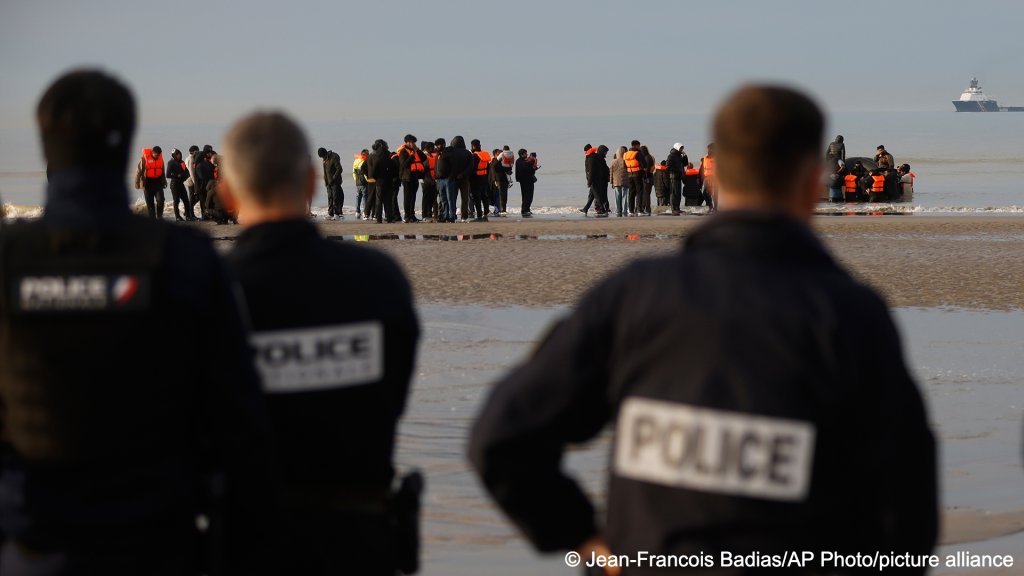Thirty asylum seekers in detention in the UK have reportedly gone on hunger strike to protest against their looming deportation to France under the controversial bilateral "one-in, one-out" migration management deal.
The group reportedly began their hunger strike on Monday, the British newspaper The Guardian reported on Wednesday (November 26).
Many of the 30 individuals are scheduled to be forcibly removed from the UK and sent back to France on Thursday as part of the much-criticized UK–France “one in, one out” scheme, an inter-country agreement meant to decrease the number of people crossing the Channel in small boats from France.
Following the implementation of the deal, which was penned in August, two people deported to France have reportedly since returned to the UK on small boats, posing questions about the effectiveness of the program. The Guardian reported that one of those who was returned was an Iranian man who was then forcibly returned to France for a second time. The other is an Eritrean man, who is said to be in a detention center and due to be sent back to France on Thursday.
One asylum seeker taking part in the protest told The Guardian: “We decided to go on hunger strike because we have been treated like criminals. We have a reason why we came to this country: to be protected.”
Read AlsoMan deported for the second time after returning to UK, testing 'one in, one out' deal
Does not deter boat crossings
The number of people crossing the English Channel to the UK from France. Over 31,000 migrants have crossed the Channel to reach the UK since January. During the entire 2023, 29,400 migrants crossed the Channel.
The Times newspaper analyzed the impact of the one-in, one-out scheme and found that migration flows adapt to policy changes rather than decrease because of them.

Smuggler networks, for instance, have retrofitted small boats meant to carry 12 people so that they can hold as many as 80 passengers. In August and September this year, two small boats sailing for Britain were carrying well over 100 people. Previous tracking of small boat arrivals showed that most crossings involved fewer than two dozen people at any given attempt.
The investigation also showed that the UK’s departure from the European Union through Brexit has also played a factor. Failed asylum seekers and those who have been given protection but were later denied after engaging in criminal activities look to the UK as a “clean slate” where they can start the asylum application process again.
Read AlsoInvestigation examines why Channel crossings remain high despite punitive UK measures
Cross-country deal
Under the “one-in, one-out” system, some irregular migrants who reach the UK on small boats from France may be sent back. In exchange, the UK will accept the same number of people currently residing in France who will be permitted to apply for asylum through an online platform after document verification and security checks.

The deal includes limited exemptions, such as unaccompanied minors and people deemed medically vulnerable, who will not be subject to detention or transfer under the new rules.
Both governments said the arrangement is intended to reduce irregular Channel crossings while expanding controlled legal routes.
Human-rights groups, however, are already raising questions about how the returns will be carried out and whether the system adequately protects people with legitimate protection needs.
“Once again, refugees are treated like parcels, not people, while the public is left to pay the price for, yet another cruel, costly failure dressed up as policy,” Amnesty International said in a statement.
Read AlsoUK announces tougher requirements for migrant settlement
